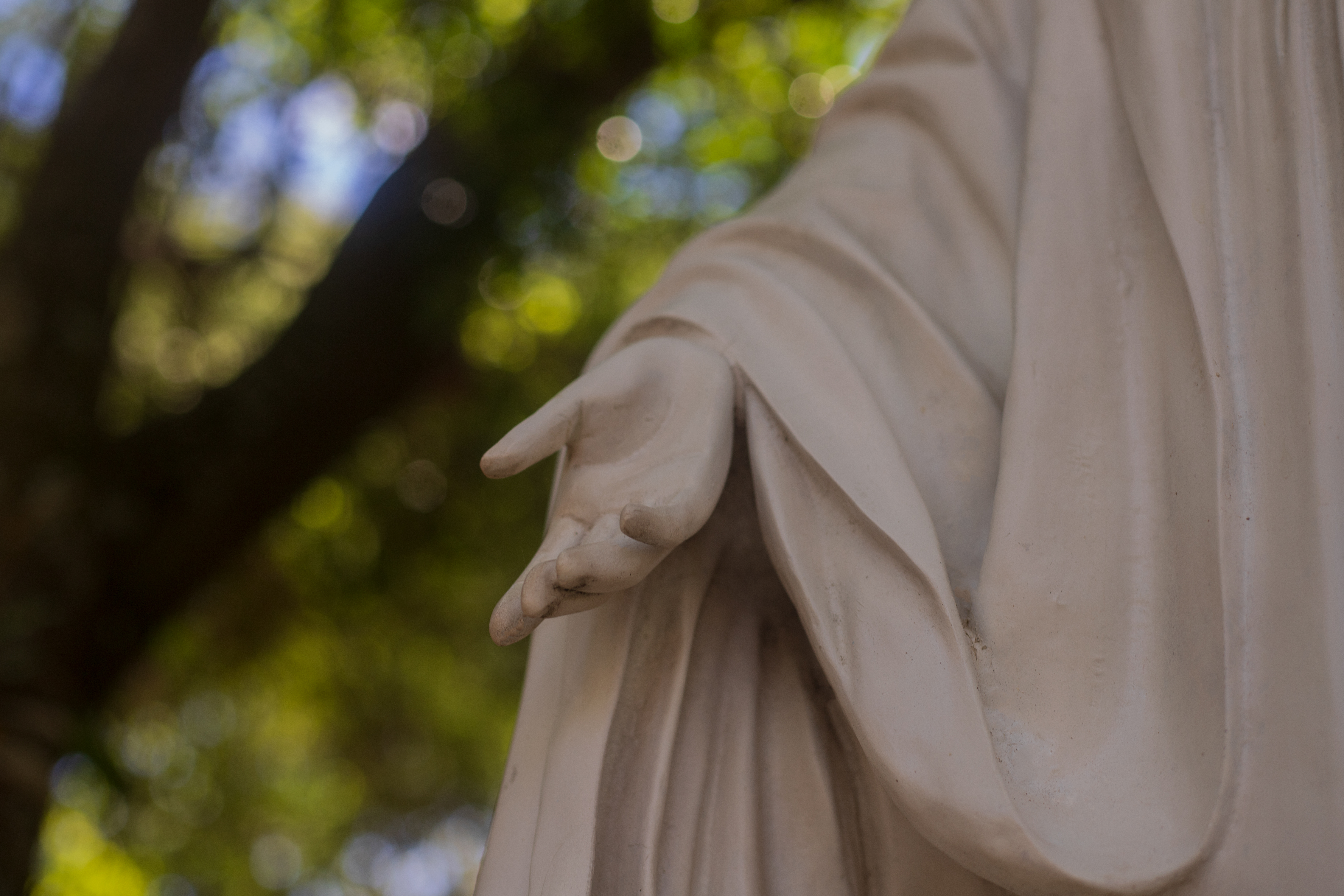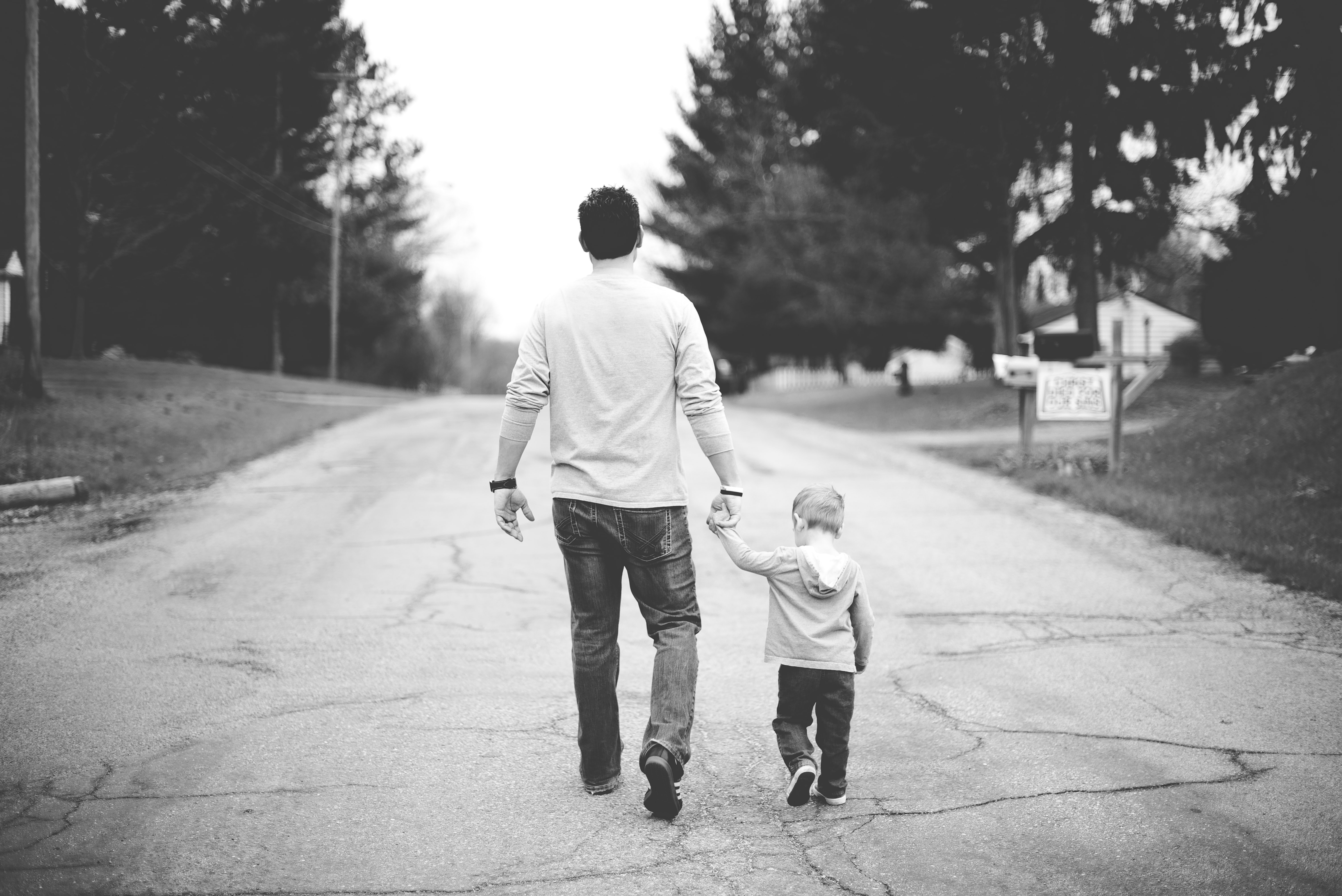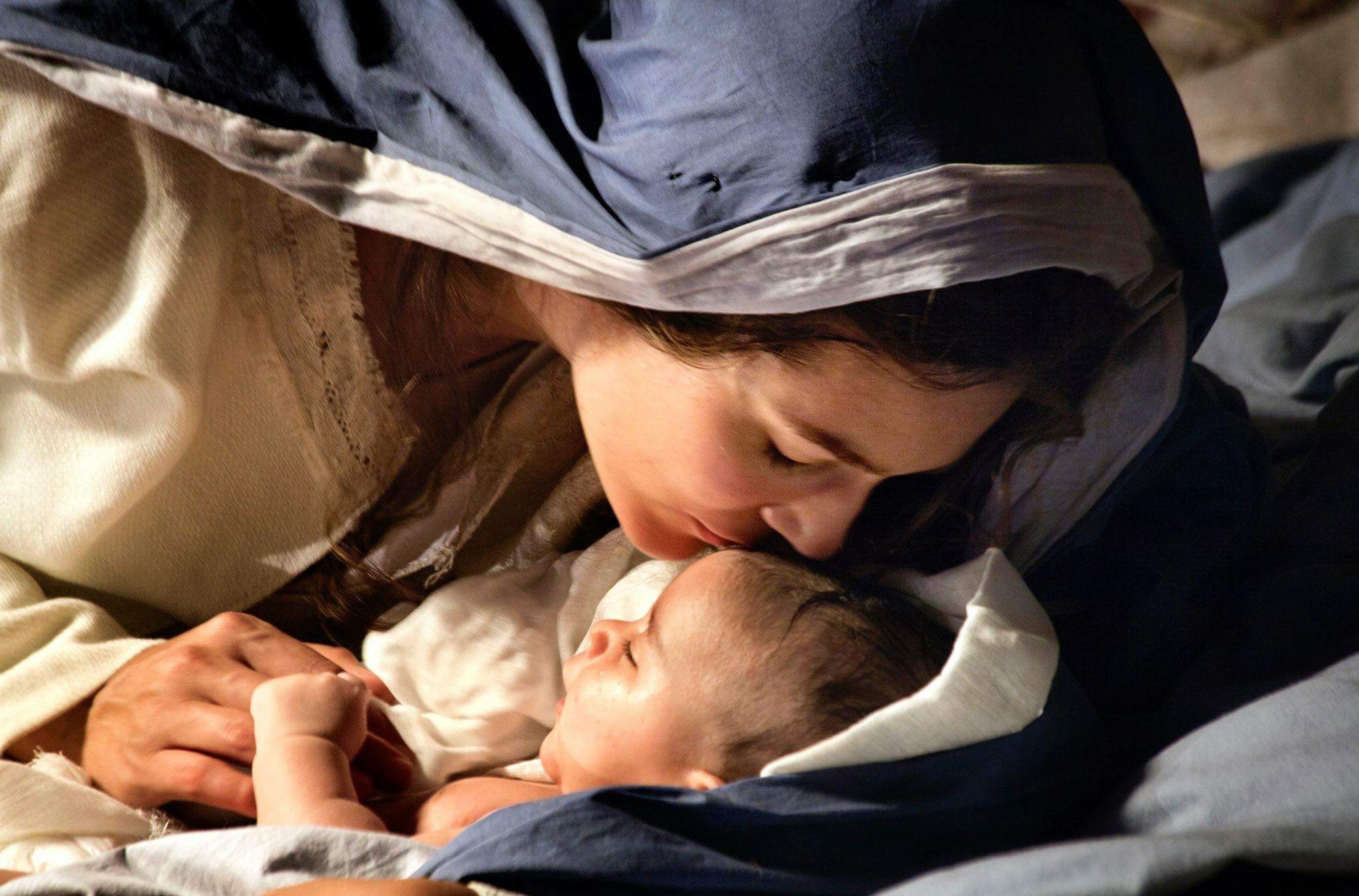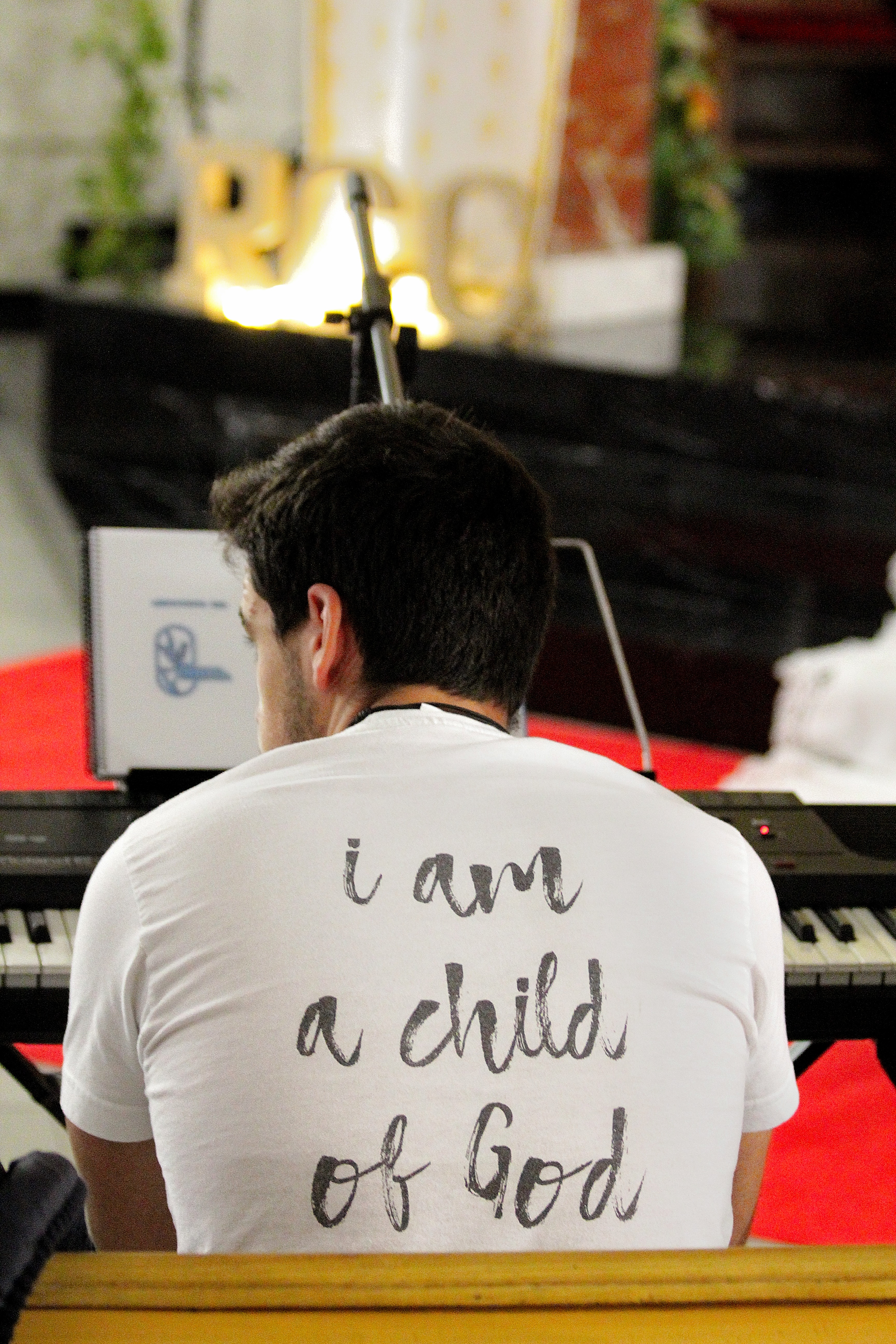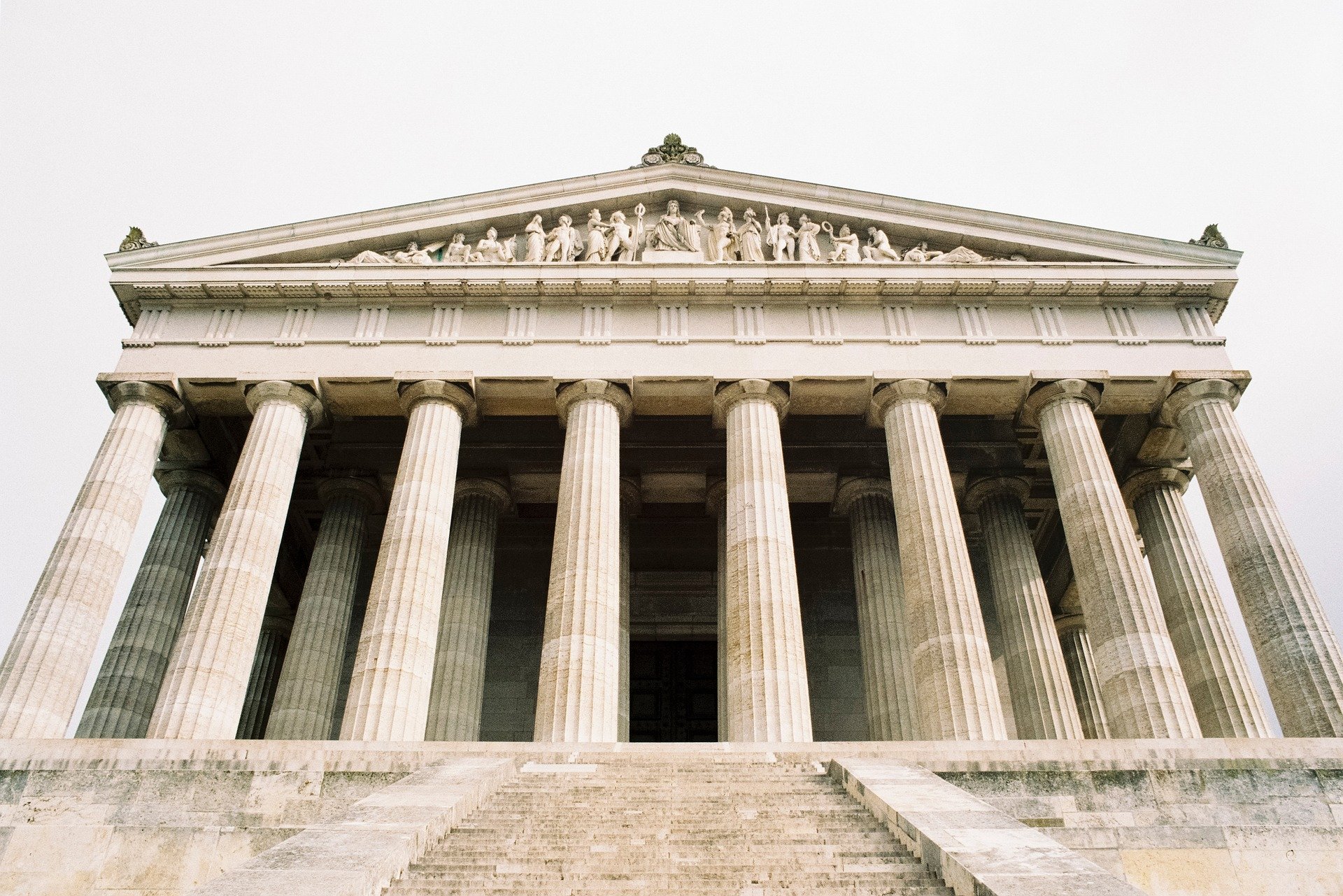Our practice is to attend 8:30 Sunday Mass but sometimes that doesn’t work out. One Monday after such a time, I ran into my priest and he asked where we were the preceding day. “I know my sheep,” he said with a smile. I knew he wasn’t chastising me. He cares about his parishioners. It feels good to be noticed and known. And missed.
I love the image of Jesus as the Good Shepherd. St Therese of Lisieux encourages us to be childlike in our love and trust of Jesus but I often feel more like a sheep than a child. Sheep aren’t really the brain trusts of the barnyard. Left alone, they become overly wooly. Their vision is impaired as is their movement. Recall Baarack, the Australian sheep found with over 75 pounds of wool weighing him down.
This is a metaphor for the spiritual life. Left alone, my gaze shifts away from Jesus. When I am not diligent in prayer, when I wait too long between confessions, it becomes harder and harder to remember where I should be focusing my vision. It’s easy to get caught up in the issues being played out in the news or on social media. I find I am less patient, less charitable, and less nice. Instead of trying to see Christ in those around me, I see the negatives. My eyes become clouded with the wool of sin.
I also find I am bearing the weight of my sins and stress. In times of consolation, I can skip through my busy day of interruptions and tasks, and still feel good. I am energized by my life. Again, when I lose my habit of prayer, the stressors of life grow like uncontrolled wool and weigh me down. Everything is harder. I want to sleep.
Jesus is the shepherd who takes care of me. When I drag my wooly, weighted-down self to him, he shears off the sin and shows me the light again. I know his voice and he never ceases calling me to him. He is waiting patiently to help me. He desires to keep me safe. When I surrender to him, he sleeps at the gate of the sheepfold, protecting me from the wolves prowling outside.
Jesus came so that we “may have life and have it abundantly” (John 10:10). What a wonderful message! As we journey through this life, we have a shepherd who came for the express purpose of bringing us salvation and abundance. We know his voice. We know he wants us to follow him. It is hard and brings its own set of challenges in a world that has turned away from God, but we may be assured that our shepherd will always be there guiding, protecting, and shearing away the excess that gets in our way.
 Merridith Frediani loves words and is delighted by good sentences. She also loves Lake Michigan, dahlias, the first sip of hot coffee in the morning, millennials, and playing Sheepshead with her husband and three kids. She writes for Catholic Mom, Diocesan.com, and her local Catholic Herald. Her first book Draw Close to Jesus: A Woman’s Guide to Adoration is available at Our Sunday Visitor and Amazon. You can learn more at merridithfrediani.com.
Merridith Frediani loves words and is delighted by good sentences. She also loves Lake Michigan, dahlias, the first sip of hot coffee in the morning, millennials, and playing Sheepshead with her husband and three kids. She writes for Catholic Mom, Diocesan.com, and her local Catholic Herald. Her first book Draw Close to Jesus: A Woman’s Guide to Adoration is available at Our Sunday Visitor and Amazon. You can learn more at merridithfrediani.com.
Feature Image Credit: pen_ash, https://pixabay.com/photos/sheep-wool-woolly-livestock-farm-2423165/

